They aren’t called “Trailer Parks” anymore, I’m told. The phrase has negative connotations. “Mobile Home Communities” is better, though still not ideal. “Manufactured Home Communities” is preferred. Which is fine. But everyone I’ve known who lives in a Trailer Park calls them “Trailer Parks,” so I’m going to stick with that.
It’s the last slur to be reclaimed– “Trailer Trash,” somehow a piece of, and yet distinct from, the larger class of “White Trash.” Unlike so many other nasty words that have lost their sting with time, “Trailer Trash” sticks. It still feels ugly.
To my childhood mind, a “nice” home meant a clean one with a family in it. Ours was a manufactured home, plopped onto an unfinished basement on its six-acre lot sometime in the 70s, but it was nice. Clean and comfortable, with large rooms and big windows. It never felt like anything less than a complete home. So I couldn’t understand why that word, “manufactured,” always made my parents cringe. My friend Ashley’s house was also “manufactured,” and it was a nice home. But, unlike ours, it sat on a little corner lot on the upper cul-de-sac of one of the Trailer Parks in town. I loved to visit Ashley, who knew far more curse words than I did and introduced me to the lifelong pleasure of Ramen Noodles. Somehow there was always a pickup game of football on that street, with little blonde Ashley right in the middle of the scrum. When I remember those days, she is always sporting a bright purple Minnesota Vikings sweatshirt and yelling out plays at the top of her lungs. It will be surprising to no one that I tended to lose focus and run the ball in the wrong direction, but memory tells me, when I paid attention, I was a decent Left Tackle.
On Halloween, the Trailer Parks were the place to be. I don’t like to make generalizations about groups of people, but I can tell you this for sure: poor people are more generous than the wealthy and they know far better how to have a good time. Full-sized candy bars abounded, and the long parade of mobile homes were all dolled up, festooned in crepe paper, cotton-ball spider webs and vibrating with music. After night fell, the streets were safe as could be, thanks to the streaming bands of revelers making their way through the festivities, not to mention the endless multitude of front doors, out of which would pop some unknown mother or grandmother asking just who we belonged to and whether we’d better be making our way back home and wouldn’t they just give our parents a call if we didn’t hurry up. To me, accustomed as I was to life surrounded by silent forest, the trailer park was a constant party.
It is not considered dignified, in this nation that glorifies the “upwardly mobile,” to live in a trailer park. We like stories in which people who started out in poverty rise to wealth, but we’d rather not deal with the millions of people who, despite a life of work, remain poor. We find them shameful. And the Parks themselves show the effect of that shame–planted as they are, typically, on the outskirts of towns, on the most marginal land. Land that was otherwise unwanted. Because trailer parks are filled with the poor, and we are thoroughly uncomfortable with the poor, we don’t like to look at them. Poverty itself, to the American mind, is an undignified state.
It’s curious that we maintain that belief, that the poor are naturally undignified, in the face of so much evidence–the Kardashians, the Banking class, the Military-Industrial profiteers, the Trumps–proving that just the presence of money confers no particular value to a person’s life. Proving that money is often, itself, the undignifying force. What is more undignified, truly, than to take advantage of others to enrich yourself? To profit from despair, from envy, from death? Those are the truly shameful lives.
We make a lot of noise about the need for “affordable housing” in this country, but, because of the stigma, we tend to ignore the most popular, most available source of it. In truth, trailers make sense. On average, a buyer of a brand new manufactured home pays $292,600 less than someone who has a house built on-site. Newly manufactured “Park Model” homes can cost as little $30,000—an accessible price in a country where 42.4% of workers make less than $15 an hour. And unlike the cute little “Tiny Homes” people are so fond of these days, which are built to RV codes, these homes are large enough for a family and built to HUD standards, updated in 1994, to require better, longer-lasting building materials and wiring. In an ideal world, they would meet the same requirements as stick-built homes, but better models can be highly energy efficient and durable. And older trailers can be fixed up, re-wired and better insulated, by their owners. Those are success stories too.
One story in particular comes to mind–a man we know in Kansas who has worked his whole life with his hands at one odd job or another. One day, while he was helping us with a project, he started to talk about the children he had raised with an ex-partner in a trailer here in town. The trailer was in rough shape and far too small for the growing family and he hated to see the children living in it. With no money to move, he did what he could: bought another used single-wide at the end of its good years and, with every spare hour, worked to fuse the two trailers together and fashion a new roof to shelter both. In this handcrafted home, the children grew up happy and healthy, and he spoke of it with obvious pride. 
We realized that we actually knew one of the girls he had raised when she started one day to tell us the same story–the cramped, dark, deteriorating trailer and the man who saved it, doubled the size of their home and gave them a dry, happy, cozy place to live. She grew emotional, telling the story of the man who gave everything he had, his time and his efforts, to raise her and her siblings in his hand-stitched home.
What could be more dignified than that? What person could be more precious and more necessary to this earth than one who would care for his family like he did? I would love to live in a country, in a culture, governed by men like that.
The only undignified poverty is the poverty of helplessness, and that poverty is not a natural consequence of the lack of money. Helplessness is forced upon people, from the outside, by a pattern of abuse. By years, generations of having their contributions, their labor, dismissed as valueless. By having their trust betrayed and their wealth stolen by those who could have enabled their success.
One of the great injustices of modern housing is the fact that manufactured homes in a trailer park are not financed the same way as stick-built homes. Because the buyer won’t own the land under his house, the home is generally classified as “Personal Property,” like a car or a large appliance, and not as “Real Property,” like a house. Personal Property is financed through so-called “chattel loans,” which can require lower down payments than home loans, but then carry considerably higher interest rates and shorter terms in which to pay them down. Also, because chattel loans can be difficult to find via a traditional bank, mobile home dealers and lot owners tend to steer buyers toward their hand-picked corporate loan sources, who may offer even less appealing rates. So, while a traditional home loan might offer a rate under 5%, a loan for a mobile home might be closer to 15%. And, while that interest rate won’t decrease over time, the value of that mobile home depreciates the same way a car would, almost instantaneously and then continuously over the life of the home. So, while the owner of a manufactured home on privately owned land can build equity in her home over time, the owner of that same home in a trailer park will be lucky to sell for a fraction of the original cost. Obviously, there is a huge incentive to purchase land at the same time as the house, if you’re in the market for manufactured housing. But land is expensive, and for the population these houses are marketed toward, such a purchase generally isn’t an option.
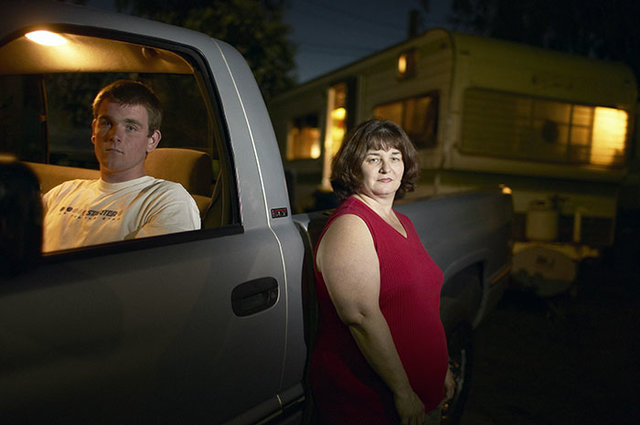
One photograph from a series by David Waldorf on the lives of people in trailer parks. Click the image to see more.
Not owning the land your house sits on brings another huge variable: the landlord. Nothing sets the tone for life in a trailer park more than the owner, who is paid a monthly rent by each of the tenants and in turn should provide for maintaining roads, trash collection, utility hookups, and public safety. In your best case scenario, a park is run by someone who lives on site and understands the needs of the people living in the neighborhood. Rents stay manageable and residents feel respected. But that best-case scenario isn’t a guarantee.
In a ready-made example of how acquiring money doesn’t make people any more dignified, an entire investment strategy has developed over the past 20 years to take advantage of the increasing numbers of the poor in this country. Real Estate Investors have noticed a trend: increasing income inequality means a higher demand for homes in trailer parks, while rising land values and societal stigma has steadily decreased the number of parks available. And mobile home owners, despite the terminology, aren’t truly mobile. To move a mobile home usually requires five to fifteen thousand dollars—money trailer owners are almost guaranteed not to have. So, without the money to buy any other kind of home, with fewer other parks to consider, and no money to move to those parks even if they existed, the tenants of trailer parks are quite literally captive to their landlords, who may be a local or may be an out-of-town “investor.”
Frank Rolfe, one such trailer park investor, has developed what he calls “Mobile Home University,” to teach amateurs about the investment opportunities of buying up Mobile Home Communities. Rolfe claims to be the nation’s 5th-largest Mobile Home Park owner and the complaints detailed in a 2015 lawsuit against him and his business partner David Reynolds over their treatment of tenants of an Austin, Texas trailer park lay bare their strategies for milking their “investments”:
In April, the new landlords, millionaire trailer park mogul Frank Rolfe and his partner Dave Reynolds, had mailed notices that rent would be raised from $390 to $450. On top of that, residents would now have to pay for their own water and sewage, up to $170 extra per month. Some families were looking at an instant 50 percent hike. Additional fees were tacked on to monthly statements, including $50 for tenants with more than two cars. Residents began talking to each other: What about the previous leases they had signed in November 2014? They hadn’t expired, so why should they sign new ones? But management was adamant: Sign the new lease or face eviction. The agreement was in English and many residents speak only Spanish. Several residents signed out of fear; others refused. Many received pink slips notifying them they had 72 hours to vacate.
The story isn’t an aberration. It’s a business strategy. As Rolfe told Bloomberg Magazine, “We’re like a Waffle House where everyone is chained to the booths.”
In 2016, NPR profiled a trailer park in Idaho with another absentee landlord, whose negligence of the Syringa Mobile Home Park left residents with contaminated water to drink and occasional “rivers of raw sewage” running between the houses. The landlord, Magar Magar, lives hundreds of miles from the Park. When he was sued by the state of Idaho and by his tenants, after decades of mismanagement and outright malfeasance, he declared bankruptcy.
That’s a worst-case scenario, to be sure, but not entirely unique in the world of trailer parks. According to NPR, the State of Ohio’s Environmental Protection Agency was, in 2016, pursuing owners of more than 20 mobile home parks in its state for problems with drinking water.
And even if a Park’s landlord doesn’t let the utilities corrode into the ground, or let the roads degenerate into pot-holed messes, he might, at any time, decide to sell the land out from under his tenants to make way for a new subdivision, or a new Wal-Mart. Trailer Parks tend to exist on the edges of metropolitan areas, pushed by NIMBY-ism and prejudice to the farflung reaches of the cities in which the residents work. But, as anyone who’s driven through a metropolitan area in the past decades knows, cities grow. And land that was marginal, even worthless, a generation ago can suddenly spike in value as populations outgrow the city boundaries.
The tenants of a trailer park have no political clout, no public goodwill, to aid them in the fight to keep their homes. When an owner decides to sell, the choice is either to move your home or walk away from it. And, again, given the costs of moving a supposedly “mobile” home, most people will choose to walk away. Across the country, rules differ on how much notice a landlord has to give his tenants before evicting them from the land, and in some states, the landlord must give residents a small stipend to help cover the cost of moving their homes. But, as that owner is likely to be one of many closing shop in a city, riding the wave of new development, the search for a new place to park could be arduous.
So why should we have trailer parks? It would be easy to conclude that they are just a failed experiment in American housing. That the potential for abuse is so high, and the benefits so uneven, that we ought to move away from that model of housing altogether. But there’s a reason trailer parks still exist: in a time when urban apartment rents are measured in the thousands of dollars, the average lot rent in a trailer park is around $300/month. Manufactured housing is inexpensive, but is built at ever-increasing standards of quality. And you can’t put too high a premium on the desire of people to own their own four walls, and have a place they can call their own. In a well-run trailer park, older people are looked after by their neighbors, children are safe to play outside, crime is low, and low-income people can live in the sort of healthy atmosphere that is normally denied to them in subsidized “affordable housing” complexes.
And one increasingly popular model for Trailer Park ownership could eliminate the likelihood of abuse and mismanagement altogether: cooperative ownership. An organization called ROC USA, out of New Hampshire, is helping residents of trailer parks collectively buy the land under their trailers from their landlords. By pooling their collective resources, trailer owners can access loans to pay market prices for the Park land—often around or in excess of a million dollars—and then set their monthly land rents at a reasonable rate to pay off the loan over time. Unfortunately, so far, this model requires the participation of a willing landlord, who will go through the process with the tenants. But, with time, states might realize the benefit of requiring landlords to allow residents the right to make an offer for their land before selling it out from under them.
Around 22 million people in the U.S. live in manufactured homes, but they don’t get much attention except as the butt of jokes. The average income level of owners is $28,400, and they are typically living at the outskirts of cities where that income wouldn’t begin to cover the cost of an apartment rental. They are the workers who keep cities running. The permanent underclass upon which our entire economy rests. They are retirees who would rather look after themselves than submit to our assisted care system, which seems designed to strip seniors of any meager wealth they might have accumulated over their lives. They are the disabled, the ex-cons, the veterans, who are holding themselves, through sheer force of will, out of the currents that would pull them into homelessness.
They might live in financial poverty, but that doesn’t mean they live impoverished lives. So long as they aren’t burdened by an abusive or negligent landlord, trailer park communities can be neighborhoods full of life and activity—with gardens and parties, pink plastic flamingoes and, yes, games of pickup football. With more logical financing laws, more stringent requirements on landlords, and more parks for competition, the disadvantages of trailer park life would fade to practically nothing. Given the right ingredients, as models of self-governance and community-mindedness, these neighborhoods can best even the most affluent in town for true quality of life. All that’s needed is for the rest of us to lose our prejudice. In the future, we might try to look differently at the “trailer trash” living at the edges of our towns. We could see them as a source of pride, not shame. As monuments to resilience and self-determination in a world that has given them little help in their struggle to survive.
And every once in a while it might be nice to stop at a trailer park, instead of speeding past them on the highway, and see that life isn’t so different there. It might even be better than what you’ve known.
As the saying goes, if you lived there, you’d be home by now.
Tonya Stiles is Co-Publisher of the Canyon Country Zephyr.
To comment, scroll to the bottom of the page.
Don’t forget the Zephyr ads! All links are hot!


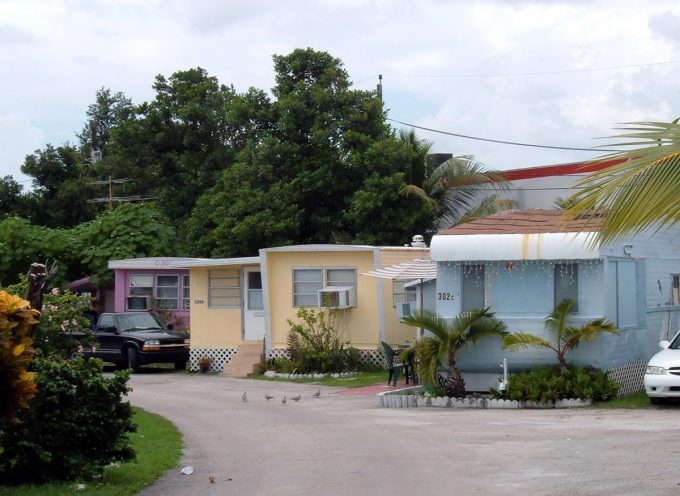
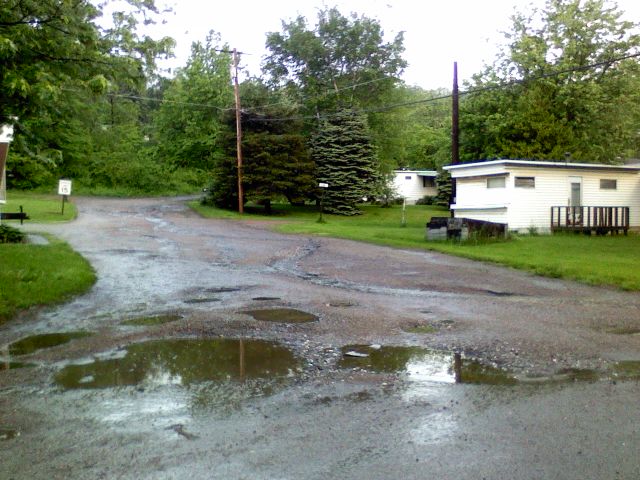

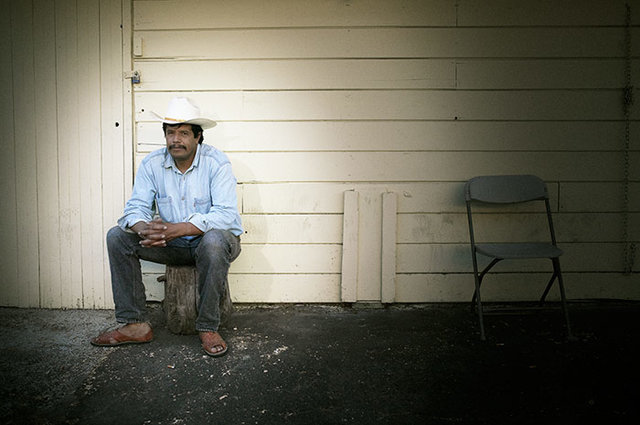
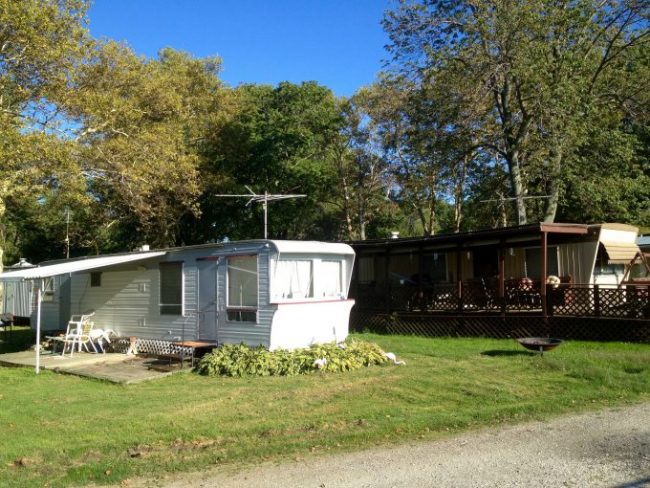
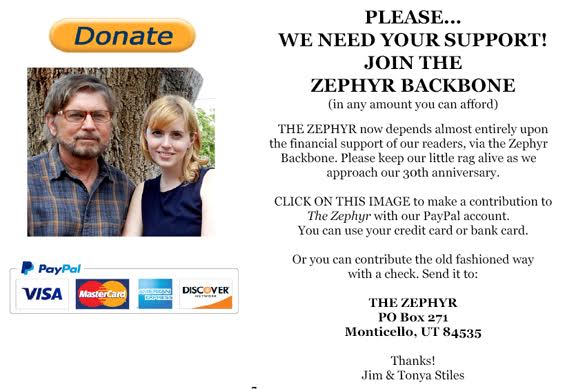


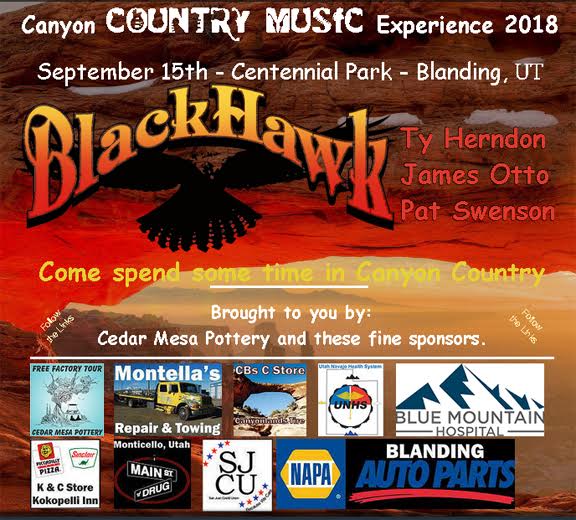
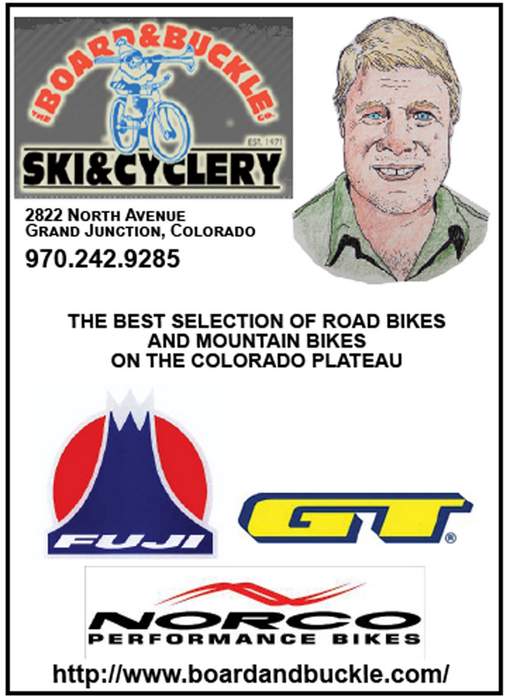


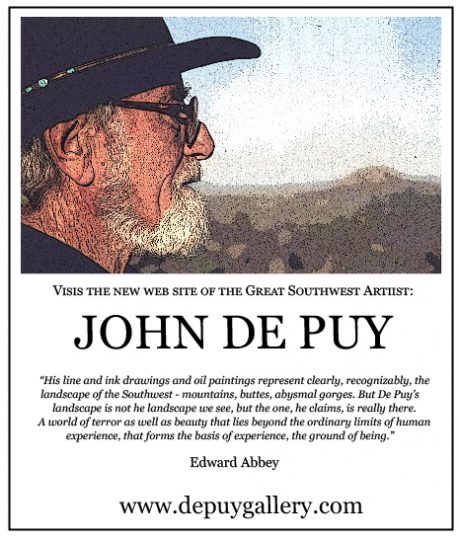
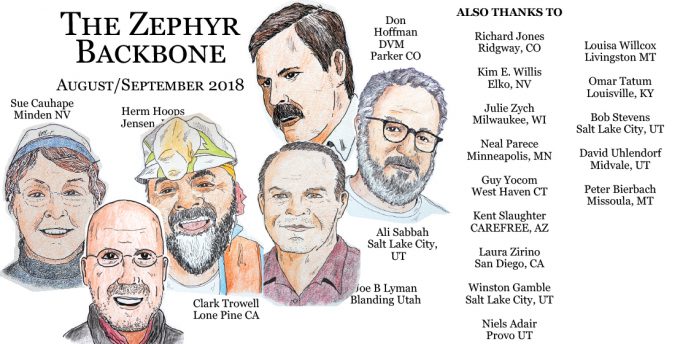
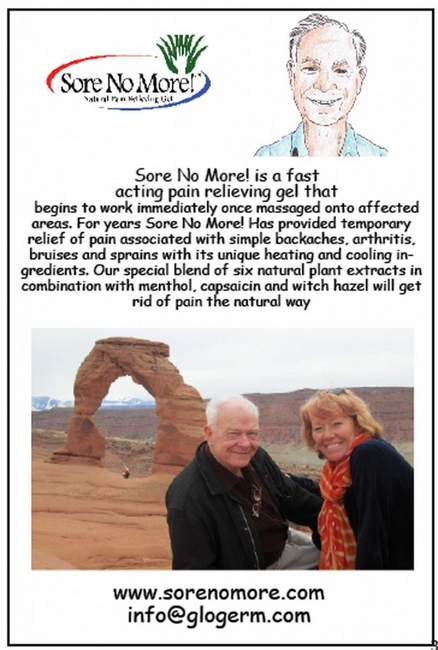
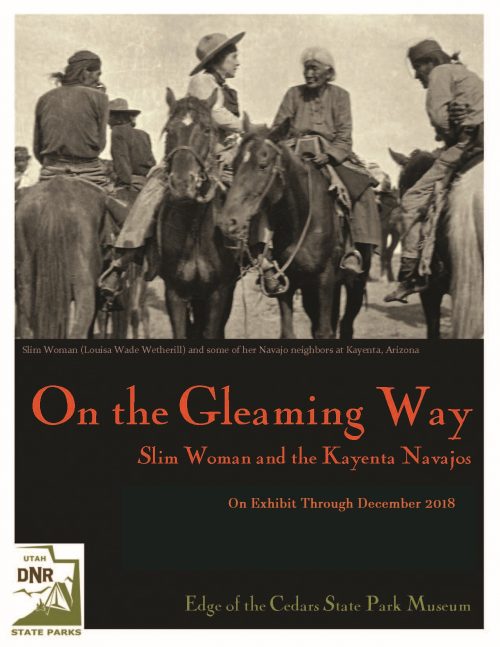
Tonya, I love your writing. It is clear concise and to the point.
I live in a double wide outside of the Blanding, Utah city limits. We raised our children here and have lived here for about 40 years. Our children come back here with their children and seem to have fond memories of growing up in a mobile double wide home.
When the county assessor kept raising my property taxes each year I finally went to the county tax adjustment board. This board consisted of the county commissioners. Two of the three showed up to hear my appeal. I had some very nice 8×10 photos of my home and the property around it. One of the commissioners, to whom I am not related, commented, when he saw the photos, that the taxes should be going down because the value of the home was going down. I did receive a reduction in my property taxes. By the way, the assessor was a devote Democrat and has since been replaced.
Excellent article, Tonya. I had a My View in The Moab Sun News a couple of years ago in praise of trailer parks. It got the most comments, all supportive, of any column I’ve done for them. I grew up in the oil field, so I lived in truly mobile trailers which we pulled with whichever model of Oldsmobile we happened to own. And yes, we were called trailer trash. I have little patience with that term these days. I’ve known PhDs who lived in trailers, and didn’t bother calling them manufactured homes. Although I am lucky enough to own my own property, I still live in a trailer. But I’ve given up on getting any local governments to realize what a boon they can be to low-income residents. The prejudice is too complete, locally as well as nationally (i.e., in a movie, if you want to make sure someone is a wasted piece of human flesh, you put them in a trailer). I’ve found Democrats and Progressives are, strangely, worse than Republicans in those terms. Anyway, thanks for the article. You were spot on.
Loved this article, but of course, it upset me, especially learning about the “business strategy” of investment that preys upon the so-called poor. There seems to be another trend in low-income housing that’s growing and will undoubtedly put this “strategy” out of business — full-time RVing. I follow a “tribe” of such RVers on YourTube who travel with each other, living full-time in their rigs, boondocking on BLM land to save money and making their livings by producing YouTube videos for people like me to live vicariously through their eyes. There is even a family who adopted three kids and are home-schooling them while traveling with this tribe. I really envy those kids and the childhood they will be able to tell their friends about. It astonishes me how these people help each other repair and solve problems with their rigs, teach each other how to do various things, and also clean up their “land.” Leave no trace is the ethic. One example of this was when the tribe (then expanded to dozens of people) worked through “freecampsites.org” with the police and disposal company of Ehrenburg, AZ to clean up the remains of a burned out RV and garbage left by the true trailer trash. One guy had a torch they used to cut the RV pieces down to size. A few had pickups for hauling the trash. Many many others searched through the whole area even beyond the clearing where they all camped, loading garbage bags with all kinds of crap others left behind. WOW! Now that’s the kind of trailer trash I’d love to call my friends and neighbors. And they are beyond the reach of scalliwags.
It’s nice to hear about some RV campers who are cleaning up after themselves. It does not, however, mitigate the fact that Recreational Vehicles are a veritable plague.
i loved living at holiday haven in moab. my kids (now adults) will tell people their fondest memories are of living there. kids could play with now worries , neighborhood bbq’s , swimming in the summer. i now live in a large home but truly miss the trailor court life! it was a community of it own ,like our own little town. we never felt poor or trashy we were happy and having fun .
When I was born; I was brought home to a small trailer in Provo where my father was going to BYU. When we finally moved home to Moab; we lived in a bigger trailer, parked next to a cement slab in the back of what is now Tag A Long Tours. We then moved to apartment living, then subdivision living and then to the house that stood where the Hamton Inn is across from Maverick. When I got married, we started in a basement apartment, then to a tarpaper shack. We then purchased a double wide and moved next to in-laws. The trailer was supposed to be temporary. That was 47 years ago. We own the land and raised our children here. It’s just the two of us and we are fine, We can see our neighbors but we can’t hear their lives going on. Home is where you don’t have to worry about moving out of unless you really want to. I am home and most people would say I live in a trailer.
Great article. Glad somebody can see the value of manufactured housing. Now to convince planning departments and banking establishments.
My first house, purchased at age 20, was a 12′ x 50′. I paid for it in three years and moved it once because the first trailer park was closing. I bought a new 28′ x 60′ a few years ago. It has 4 bedrooms, 2 baths, 6″ walls and central air conditioning. And it’s on a foundation on a lot that I own, has no tongue, wheels or title. Yet people in this small oilfield town sneer, “Ewww, you live in a TRAILER!” I tell them that if they can hitch a pickup to the front of it and drag it down the street, they can call it a “trailer”.
I’ve lived in three “stick-built” houses. The fanciest, most expensive one was built in Denver in 2003. It had such poor insulation that when the temperature got to 10°, there was frost on the insides of the windows. I’ll take a manufactured house any day; one that’s built in a factory where it’s warm and dry and the walls are actually plumb.